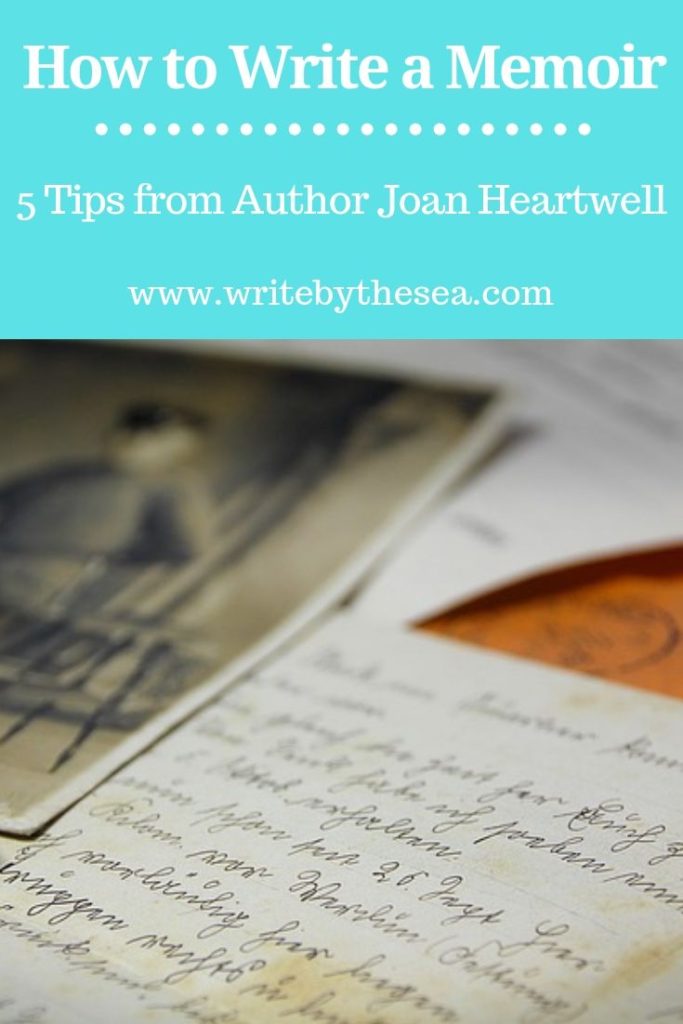If you want to know how to write a memoir these 5 tips should help.

Tip #1 – Be Fearless
Fear is probably the number one obstacle that keeps popping up in front of would-be memoirists.
What if so and so gets upset because I’ve written about her?
What if I’ve misremembered that conversation about such and such?
What if I say something happened in 1980 and it turns out it really happened in ‘81?
Will someone try to sue me?
You can imagine the effect this kind of thinking can have on one’s temporal lobe.
Just go ahead and start writing and you can worry later about whether or not you’ve offended your best friend from grammar school and what can be done about it. (Change your name? Change her name? Call ahead and warn her?)
Any kind of circular thinking, whether it’s about people and events you want to write about or just your own personal confidence issues) is going to countermand the kind of mental environment you need to create in order to do your best work.

Tip #2 – Don’t Worry About Connecting the Dots
Everybody has a different method for generating the actual structure of their memoir.
For me, what worked was making a list of all of the events that I wanted to include in my book.
Once I had the list, I made some notes to go with each event.
Then I turned each set of notes into a paragraph and then a chapter.
Even though my tale happens to unfold in chronological order, identifying what episodes I wanted to include in advance allowed me to work outside of that order.
I could work on whatever chapter I wanted whenever I wanted and then organize all the chapters at the end.
I had to add a few transitions to get from A to B to C, but other than that I had what I needed.
There are other great methods out there too, so read lots of memoirs and see how other writers do it and figure out which will work best for you.
A friend of mine wrote a beautiful memoir by describing a singular event in her life but flashing back randomly to other events as the main one unfolded.
This allowed her a lot of creative freedom, and it also allowed her to gloss over areas of her life that she didn’t feel would be interesting to readers.
Tip #3 – Trust Your Instinct (When Your Memory Fails You)
No one would ever suggest you take the James Frey route and jive up your memoir with untruths.
But if you can’t remember word for word that conversation you had thirty years ago with the boss who really let you have it during your employee evaluation, don’t be afraid to give us the gist of the conversation anyway.
We want to hear him shouting, even if you are off a word or two.
Never tell the reader, “I don’t really remember the whole conversation but it was something about….” unless you have a really good reason to do so.
Tip #4 – Trust that Other People Will Identify
My story of the first several decades of my life was so bizarre that, with the exception of a few really close friends, I never told anyone about it … until I ultimately got around to writing it.
My family was über dysfunctional and I felt that very few people would be able to relate.
But in fact, I have since learned, dysfunction is dysfunction, and it can come in many shapes and forms, and now I am finding that anyone who has encountered it (and almost everyone has) can relate to my circumstances.
Tip #5 – Brace for Impact
More than likely your memoir is about something very important to you, an event close to your heart, a relationship that no longer exists, or an entire life riddled with challenges.
So it might be hard to remain objective when you get notes back from agents saying, “It’s too small a story for us,” or, simply, “not my cup of tea.”
How can someone dismiss your life so flippantly? you might well ask.
If you are new to the book world, it’s important that you know this: According to the most recent stats I could find, about 400,000 books are traditionally published each year.
Almost 300,000 are self published.
That’s a lot of books.
I could not determine what percentage of these books are memoirs, but in my own personal correspondences with agents and editors, I have learned that the percentage is increasing by leaps and bounds, because so many people want to tell their own stories before they try their hand at other genres.
Everyone who works in the book world is thus inundated; they don’t mean to come off as rude, but they need to respond to your pitch as quickly as possible and get to the next one.
Hang in there.
If you’ve got a great story and it’s well written and you’ve had a few objective readers give you feedback, don’t shelf you work.
Rather, change the pitch and see if a more sales savvy description will catch someone’s eye.
About Joan Heartwell
 Joan Heartwell is the author of the memoir Hamster Island and several novels published under another name.
Joan Heartwell is the author of the memoir Hamster Island and several novels published under another name.
For more tips about how to write a memoir, click here.
Note: This post may contain some affiliate links for your convenience (which means if you make a purchase after clicking a link I will earn a small commission but it won’t cost you a penny more)! Read my full disclosure and privacy policies...





